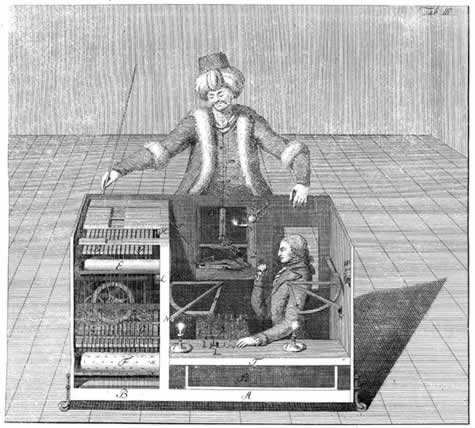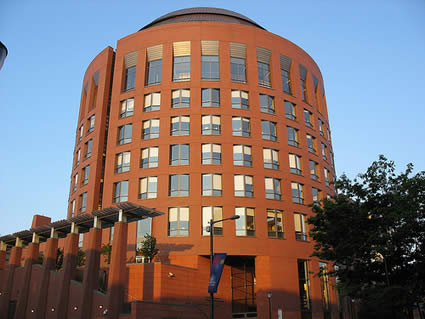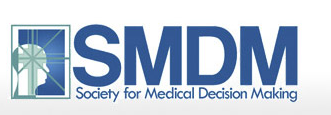ACR 2010, Jacksonville. Deadline soon: March 1, 2010
 Subscribe to Decision Science News by Email (one email per week, easy unsubscribe)
Subscribe to Decision Science News by Email (one email per week, easy unsubscribe)
ASSOCIATION FOR CONSUMER RESEARCH 2010 CONFERENCE
Conference Announcement and Call for Submissions
Conference website: http://www.acrweb.org/acr/
The 2010 North American Conference of the Association for Consumer Research will be held at the Hyatt Regency Riverfront in Jacksonville, FLfrom Thursday, October 7 through Sunday, October 10, 2010.
The theme of ACR 2010 is: Think BIGBig Ideas. Big Findings. We would like to promote research that has a big picture focus. Big picture research either involves building theories that apply to a wide range of phenomena or discovering “big” phenomena that are of real importance to consumers’ lives. We also would like to promote a big picture way of communicating findings and theories at the conference. We would like talks to focus on the main ideas at the expense of detail. Several changes at this year’s conference reflect the Think Big theme. Every special session will have four, shorter talks. Session chairs are asked to kick-start discussion about big picture implications at the end of special and competitive paper sessions. Abstracts in the program will be shorter, encouraging authors to clearly communicate their big picture ideas. Finally, we will appeal to reviewers and Associate Editors to err on the side of big picture contributions instead of methodological perfection.
The conference format will follow that of past years. A pre-conference Doctoral Symposium will be held Thursday (co-chaired by Priya Raghubir and Patti Williams). Thursday evening will feature an opening reception for ACR 2010. The conference program on Friday and Saturday will include competitive paper sessions, special sessions, roundtable discussions, poster sessions, and the film festival. A gala reception will be held Saturday evening.
Format and Program Structure
There are five submission types for ACR 2010.
1. Competitive Papers represent the completed original work of their authors. The ACR conference associate editors and co-chairs assign papers to sessions that reflect similar scholarly interests.
2. Special Sessions provide opportunities for focused attention on significant areas of research. Successful sessions shed light on a specific research area. They raise questions about the state of the area and open avenues for future research.
3. Films at the film festival sessions provide video insight into consumer topics.
4. Roundtables encourage intensive participant discussion of discussion-worthy topics.
5. Poster Sessions present findings from a current working paper. Authors display posters of their research, distribute their papers, and are available to discuss and answer questions during the assigned poster session
A paper submitted in one track cannot be considered in any other track if it is rejected.
Submission and Decision Deadlines
All submissions (for competitive papers, special sessions, films, posters and roundtables) must be received by Monday, March 1, 2010 by 5:00 pm Jacksonville time (EST). Note that this is earlier than last year’s deadline. In order to maintain accessibility to a wide range of participants, each attendee may present only twice in special and/or competitive paper sessions during the conference. When uploading a submission, authors will need to specify the paper presenter.
Notification of acceptance will be made by Friday, July 2, 2010.
General Submission Requirements
1. Submissions should not already be published, or accepted for publication in any journal. Submissions should also not include content that has been presented at earlier North American ACR conferences.
2. It is mandatory that all accepted papers are presented at the conference by an author.
Submission Procedures
All submission activity (submissions, reviews and notifications) for ACR 2010 will be electronic, through the conference website (URL:http://www.acrweb.org/acr/).
In order to use the conference website (e.g., to submit a manuscript or provide a review), you will need to sign up at and create a user profile (follow the online instructions). If you are already signed up (i.e., if you have used this ACR conference management system in the past), please log in to the system and update your user profile (content and methods codes). To log in and update your profile, please click here .”
Any time you log on to the website, you will see the following message: “To submit a paper or a proposal, please click here. ” Please click on the link and follow the instructions.
All submissions to the 2010 ACR Conference website require the following information:
• Submission Type: Competitive Paper, Special Session, Film, Poster, Roundtable.
• Title of Submission
• Primary Contact Information: name, affiliation, mailing address, phone number and email address for the author who serves as the primary contact
• Names of Co-authors/Other Participants and their affiliations, and whether they are presenting author(s).
• Content Area Codes and Methodological Area Codes for your submission (These are critical for assigning reviewers – please pick codes that provide the best match to your work).
• Declaration that the submission has not been accepted for publication elsewhere.
• Signed copyright release form.
Use Word 2003 or Rich Text Format file format to upload.
Use consistent author name: All authors need to ensure that their names appear in the same way in all submissions. This is because the database will consider Gita Johar, Gita V. Johar, and Gita Venkataramani Johar as three different authors and may result in a program that has Gita presenting at the same time in three different rooms.
Time limit. Please note that the website will time you out after 60 minutes. Therefore, in order to avoid losing information, it is best to copy and paste your information into submission fields rather than composing it online.
Acknowledgement of receipt. The primary contact person will automatically receive an email acknowledgement of receipt of the submission. If you do not receive an acknowledgement, please check your spam folder. If you do not receive an acknowledgement within 48 hours after submission, please send an email inquiry about the status of your submission to: ACR2010@chilleesys.com.
Specific Information for each Type of Submission
Please see the conference website: http://www.acrweb.org/acr/
Contact info
All program-related queries:
Email: ACR2010@rsm.nl
All administrative questions, such as, hotel, payment, registration, dietary restrictions:
Email: acr@acrwebsite.org










